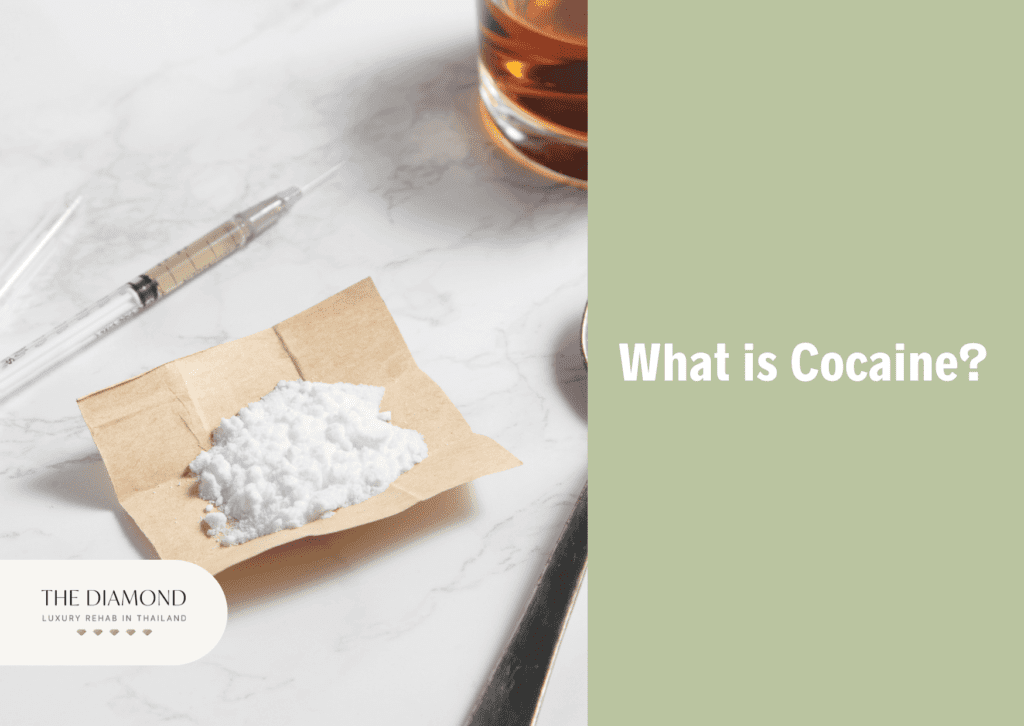Cocaine overdose: symptoms and treatment

Aside from its high potential for abuse, cocaine is also known as one of the most dangerous drugs and its use can lead to a fatal overdose. Cocaine overdose is a medical emergency that occurs when a person uses excessive amounts of the drug, and it results in serious, life-threatening symptoms or even death.
That said, knowing the signs of a cocaine-related overdose is crucial. The symptoms of a cocaine overdose include agitated behavior, high blood pressure, abnormally high body temperature, and hallucinations. Surviving an overdose is often a wake-up call for several people with cocaine addiction.
Therefore, it is imperative to help them seek the treatment they need to avoid serious complications and even death. Treatment options for cocaine overdose include medically supervised detoxification, mental health services, and 12-step programs. Your personalized treatment plan will typically depend on the length and severity of drug use, its effects on you, and the level of care that you require.
What is Cocaine?
Cocaine is an illegal stimulant drug that has a strong addictive potential. As a stimulant, it speeds up cognitive function and creates feelings of energy, euphoria, alertness, and wakefulness. These short-term effects that cocaine can produce are what make it addictive, causing users to have intense cravings for the drug.
Cocaine is obtained from the leaves of the coca bush, which is indigenous to South America. The answer to the question of how much cocaine it takes to overdose may depend on the amount used and the method of ingestion. It can be smoked or snorted, but injecting the substance has the highest risk of overdose. The most common street names for cocaine are coke, flake, candy, blow, coca, and big C, to name a few.

What is Cocaine overdose?
A cocaine overdose happens when an individual uses enough cocaine in one sitting to cause adverse effects that their body could not handle. During this event, commonly experienced symptoms of cocaine overdose such as increased heart rate and blood pressure rise to potentially deadly levels.
The risk of overdose with cocaine abuse is also highly unpredictable. One can succumb to a cocaine overdose whether they have been habitually using the drug or they are a first-time user.
What causes Cocaine overdose?
The causes of cocaine overdose include consuming too much of the substance in one sitting, taking a too-concentrated form of cocaine, mixing cocaine and alcohol, and using the substance with certain other drugs such as heroin and fentanyl.
Needless to say, consuming too much cocaine in one sitting is the biggest reason for a cocaine overdose. When the amount of substance used reaches toxic levels, that is when symptoms of cocaine overdose become life-threatening.
Taking a too-concentrated form of cocaine can also risk overdose. This more potent form of the already powerful drug makes the user experience its effects in a more intense yet short-lived fashion. Alcohol and cocaine are a fatal combination that creates a new element in the body called cocaethylene. This powerful metabolite increases the toxic effects of both substances.
Lastly, taking cocaine alongside other drugs such as heroin and fentanyl is extremely dangerous because the combination of the substances can easily reach toxic levels, which significantly increases a person’s risk for lethal overdose.

What are the symptoms of Cocaine overdose?
Cocaine overdose symptoms can manifest in both physical and psychological ways. The symptoms of cocaine overdose are listed below.
1. Extreme agitation or anxiety
One of the most commonly experienced signs of cocaine overdose is extreme agitation or anxiety. In general, agitation is the adverse reaction from drug abuse that most often results in emergency room visits. On the other hand, anxiety and cocaine use frequently co-occur, and symptoms of anxiety may present themselves in between uses, during an overdose, or during withdrawal from the substance.
Cocaine users may engage in reckless or dangerous behaviors when experiencing agitation while anxiety can look like irritability, restlessness, difficulty concentrating, and may even induce panic attacks in some people.
2. Increased blood pressure
Cocaine is a powerful stimulant that causes a physiological jolt in an individual. This leads to a contraction in blood vessels that makes them smaller, which ultimately results in one of the signs of cocaine overdose – increased blood pressure. This occurs because the heart needs to work extra hard as it pushes the same amount of blood through now smaller blood vessels.
Regular cocaine use can cause the heart to become overworked and increases the risk of long-term heart damage. Signs of cocaine-induced high blood pressure include chest pain, difficulty breathing, sweating, and irregular heartbeat.
3. Sweating and high temperature
Overdosing from cocaine can cause one’s body temperature to rise to dangerous levels. Also known in medical terms as hyperthermia, this symptom is often accompanied by excessive sweating and may result in stroke or even death. Symptoms of hyperthermia from cocaine toxicity include sweating, dizziness, increased heart rate, and weakness.
4. Hallucinations
Extreme psychological shifts such as anxiety and paranoia that happen during a cocaine overdose may worsen and turn into hallucinations or psychosis. Cocaine abusers typically have visual hallucinations in the form of shadows, flashing lights, and moving objects. In severe cases, others may experience tactile hallucinations known as “cocaine bugs.” This type of hallucination causes a feeling of bugs crawling under your skin.

Who is at risk of a Cocaine overdose?
Individuals who are at risk of a cocaine overdose include those who use an increasing amount of cocaine for longer periods than intended, polydrug abusers, those who use high-purity cocaine, and people who use the substance intravenously.
The major risk factor for an overdose is the compulsive use of cocaine, which involves taking more and more of the drug for longer periods than intended to achieve the same desirable effects a person had experienced during their first encounter with cocaine. Those who engage in polydrug use also increase their risk for overdose because different forms of drugs may either counter or intensify the stimulant effects of cocaine, leading to drug-related injuries, hospitalizations, overdose, and even death.
On the other hand, individuals who use legitimately pure cocaine may not always be aware that they have purchased a drug with higher quality and may end up taking the substance as they usually do.
However, as purity increases, so does one’s risk of overdose and other complications. High-grade cocaine causes a surge of euphoria, energy, alertness, and a feeling of power. But its negative effects also come rushing and have a high chance of stopping or damaging your heart and causing an overdose.
Lastly, although other methods of cocaine use such as smoking and snorting are also extremely dangerous, injecting the drug is associated with a higher risk of overdose. This is because with snorting and smoking, the user can feel the aftereffects of the last dose and they can gauge the amount they have already taken. But this is not the case when you inject the drug, as using it intravenously allows a large dose to be administered very quickly and the user does not have enough time to gauge how their body will react and slow down their use.
How much Cocaine is required to overdose?
The chance of an overdose from cocaine use is often difficult to predict, and no one really knows how much of the substance will lead to an overdose. While people generally consider 1.2 grams a lethal dose of cocaine, other users have suffered from fatal overdoses after consuming as little as 30 milligrams.
The bottom line is that the likelihood of a cocaine overdose depends on different unknown factors, even when one has taken the same amount they have always consumed in the past. Considering the high unpredictability and addictive potential of cocaine, the best way to avoid the risk of an overdose is still to refrain from using the substance.

What is the Cocaine overdose treatment?
Cocaine overdose treatment options include medically assisted detoxification, psychotherapy, and 12-step programs.
A medically supervised detox allows the body to get rid of the cocaine while medical professionals monitor changes in withdrawal symptoms and take prompt actions to make the process safer and more comfortable during early recovery.
Cognitive behavioral therapy (CBT) is a form of psychotherapy that is also used to help the afflicted person understand their reasons for cocaine use, as well as identify and change self-defeating thoughts and behaviors that may cause relapse.
Lastly, 12-step programs such as Cocaine Anonymous (CA) and Narcotics Anonymous (NA) are fellowships that offer support and advice to people who desire to stop using illicit substances.
What are the Cocaine overdose statistics?
Cocaine overdose statistics indicate that cocaine-related deaths have been increasing since 2010. In fact, a study from the Centers for Disease Control and Prevention (CDC) showed that cocaine overdose death rates increased from 3,822 in 1999 to 15,883 in 2019.
The CDC study also tracked overdose deaths involving the combination of cocaine and opioids. This means that although the opioid epidemic has taken over the headlines for the past few years, cocaine-related overdose deaths have been increasing in its wake.
Is a Cocaine overdose dangerous?
Yes, a cocaine overdose is dangerous because it is a medical emergency that can be fatal without prompt medical treatment. Add to that the fact that the chances for an overdose are highly unpredictable and may occur whether you are a first-time user or a long-time abuser makes cocaine even more dangerous.
This uncertainty also applies to the amount of cocaine that is considered lethal. While several grams are considered deadly, there have also been records of overdose deaths with only a few milligrams of cocaine. The truth is that there is a combination of unknown factors that may play a role in cocaine overdose and these factors vary from person to person, making it extremely difficult to predict.

What causes Cocaine addiction?
The causes of cocaine addiction include genetics, abnormal brain structure, underlying mental health disorders, and social pressures. Cocaine addiction can run in families, and having a blood relative who had problems with cocaine use or other substances may put someone at an increased risk of developing cocaine addiction themselves.
Evidence also exists that abnormal brain structure in the frontal lobes of cocaine users’ brains is linked to their cocaine abuse. The reduction in gray matter volume in their brains was associated with greater compulsive cocaine-using behavior.
Another reason some people engage in addictive behaviors around cocaine is the attempt to self-medicate for mental health disorders such as anxiety and depression. In an attempt to lessen these negative feelings, people may start using illicit drugs. However, these substances actually make these emotions come back even worse and can even end up in even bigger issues with cocaine use, anxiety or depression, or even coke overdose.
Lastly, the bursts of energy and talkativeness caused by cocaine use make it a popular drug of choice for parties. Cocaine is often used in social settings because of its sought-after effects on people who want to feel more confident and alert in social situations, which makes it one of the leading causes of cocaine addiction.
What is Cocaine toxicity?
Cocaine toxicity is another term for cocaine overdose, which is characterized by uncomfortable effects, such as anxiety, agitated behavior, tremors, elevated blood pressure, and hallucinations, to name a few.
Individuals who overdose on cocaine should receive prompt medical treatment to avoid complications or death. Receiving medical attention on time could make all the difference for your loved one who may be struggling with compulsive cocaine use.
